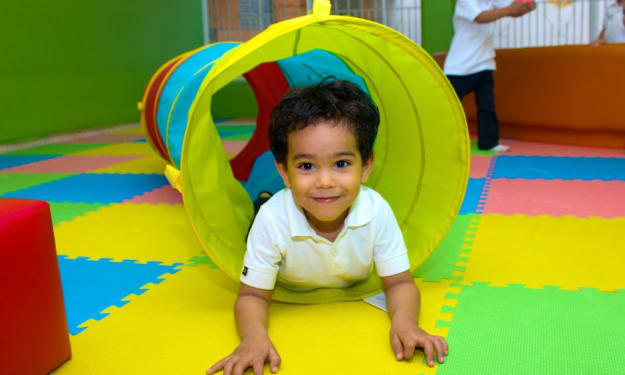Why preschool can be harmful to your child's development
Preschool

Preschool has long been touted as a crucial component of early childhood development, with many parents believing that it is essential to their child's success in later years.
However, recent research has called this assumption into question, suggesting that preschool may actually be harmful to some children's development.
In this article, we will explore the reasons why preschool can be harmful to your child's development and provide some tips for parents who are concerned about their child's wellbeing.
Firstly, it is important to note that not all children are the same. While some children thrive in preschool environments, others may not benefit from them at all.
In fact, some children may even suffer from negative effects such as increased stress, anxiety, and aggression as a result of being in a preschool setting.
One reason why preschool can be harmful to some children is that it places a significant amount of pressure on young minds.
Preschool can be an overwhelming experience for many children, who may struggle to adapt to the new social and academic expectations placed on them. This pressure can lead to feelings of stress and anxiety, which can have a long-term impact on a child's mental health.
Another potential downside of preschool is that it can hinder a child's natural creativity and love of learning. In preschool, children are often taught to conform to a specific curriculum, which can stifle their curiosity and creativity.
This can lead to a disinterest in learning and a lack of motivation to pursue their own interests, which can have a negative impact on their development.
Moreover, preschool can also be harmful to a child's social development. While it is true that preschool provides an opportunity for children to socialize with their peers, it can also lead to negative social experiences.
Bullying and exclusion can be common in preschool settings, and some children may struggle to develop positive relationships with their peers as a result. These negative social experiences can have long-term effects on a child's self-esteem and confidence.
In addition to the potential negative effects on a child's development, preschool can also be a significant financial burden for families.
The cost of preschool can be prohibitively high for many families, and some may find themselves struggling to make ends meet in order to pay for it.
This financial pressure can also have a negative impact on a child's well-being, as parents may be forced to work longer hours or take on additional jobs to cover the cost of preschool.
So, what can parents do to mitigate the potential negative effects of preschool? One option is to delay preschool until their child is older. Research has shown that children who begin school at a later age tend to do better academically and socially than those who begin school at a younger age.
By delaying preschool, parents can give their children more time to develop their social, emotional, and cognitive skills before being exposed to the pressures of a formal academic environment.
Another option is to explore alternative forms of early childhood education, such as home-based learning or play-based programs.
These alternatives can provide children with the opportunity to learn and grow in a more relaxed and supportive environment, without the pressure of conforming to a specific curriculum.
Play-based programs, in particular, can be especially beneficial for young children, as they allow children to learn through play and exploration, which is a more natural and effective way of learning for young children.
Finally, it is important for parents to remember that they are their child's first and most important teacher.
Parents can play a critical role in their child's development by providing a supportive and nurturing environment at home, and by engaging in activities that encourage their child's natural curiosity and love of learning.
By spending quality time with their children and providing them with opportunities for exploration and play, parents can help their children develop the skills and confidence they need to succeed in later years.
About the Creator
Vikash Kumar
Hello, I am an SEO executive and blogger and I share my content about education, technology, governments, travel, etc.






Comments
There are no comments for this story
Be the first to respond and start the conversation.